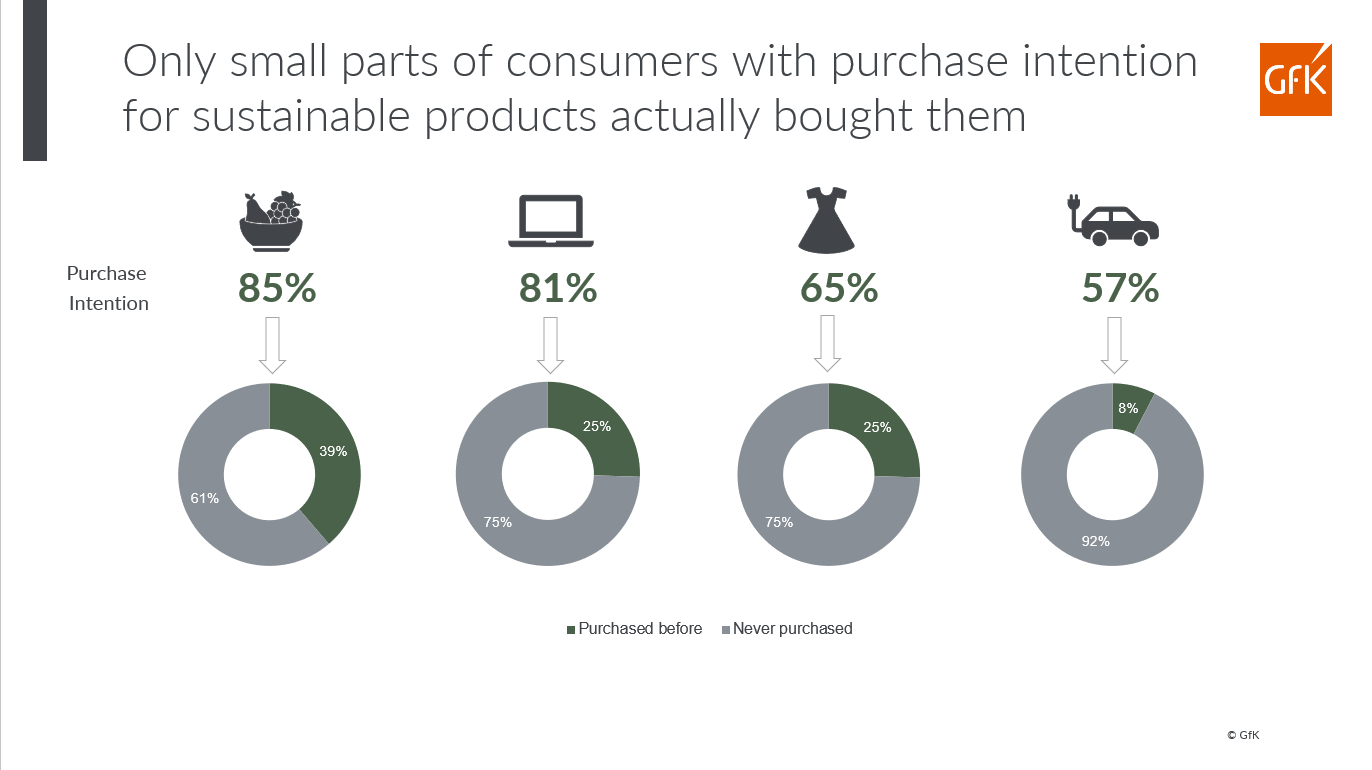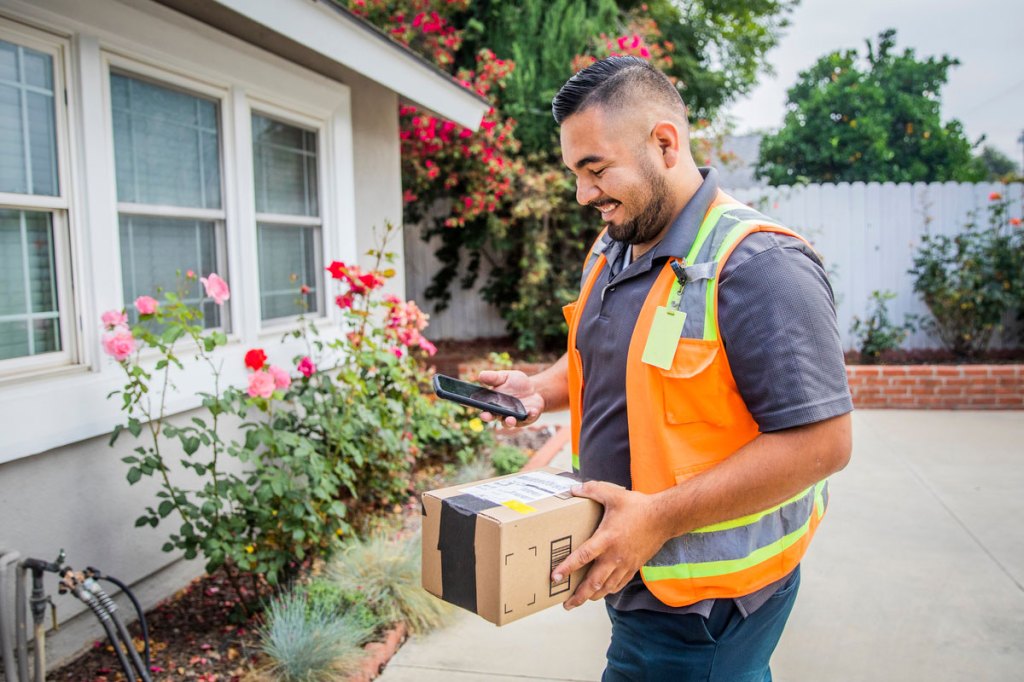While most Belgian consumers show willingness to purchase sustainable products, only few of them actually do so. A GfK study showed that in order to close this ‘intention–action gap’ it is necessary to offer sustainable products at reasonable prices, provide sufficient accessible sales channels, raise awareness and communicate a message of social responsibility. Emphasizing better product quality and longer product life might additionally convince consumers to invest in sustainable products.
Over the past years, demands for more sustainable solutions have been rising. On March 15th, 2019, about 30.000 people participated in a national climate march in Brussels, demanding various climate plans and legislations. For consumers, this demand translates into more sustainable consumption. They want to contribute to the environment, reduce energy consumption, reduce waste, and save our planet. According to the Harvard business review ‘The Elusive Green Consumer’ (2019), it has never been a better time to launch a sustainable product offer. But while many say they are willing to buy sustainable products, many are not acting on it. Why is this so? And what can we do to increase the actual purchase of sustainable goods?
High intention but little action
According to a GfK study, most Belgians indeed intend to buy sustainable products: e.g. sustainable foods (85%), sustainable electronics (81%), sustainable clothing (65%) and sustainable mobility (57%). However, many do not act on this intention. In fact, only 4/10 of those with a purchase intention for sustainable foods have actually purchased them in the past, and conversion rates for other sustainable products are even lower: less than 3/10 sustainable electronic and clothing intenders and less than 1/10 sustainable mobility intenders showed actual purchasing behavior. Hence, there is a large gap between consumers’ intentions to buy sustainable products and their actual purchase behaviors (the so called ‘intention-action’ gap).

Make sure sustainable products don’t become luxury goods
So why is there such a big gap? The GfK research results showed that higher prices are the main reason for not purchasing a sustainable alternative. While almost half of the intenders would buy sustainable products at the same price as normal products, less than 3/10 are prepared to pay even just a little bit more. Interestingly, consumers who belong to higher social classes, seem to be less sensitive to price differences. Not only do they show higher intention to buy sustainable products, they also act on this intention more often and are more willing to pay an extra cost. On the contrary, people from lower social classes significantly less often intend to buy sustainable products.
In order to reduce the intention-action gap for all social classes, it is important to keep prices as similar to normal products as possible. If prices remain higher, sustainable goods will remain a luxury good that can only be obtained by the rich and wealthy.
Be accessible
One of the top 5 reasons why consumers who had an intention to buy sustainable goods, but did not act on it, often was because they could not find them in the shops they usually visit. So even though many Belgian consumers are willing to purchase sustainable products, limited access is preventing them to do so. An appropriate and varied choice of sales channels is therefore the second and a crucial way to stimulate the purchase of sustainable products and to further close the intention-action gap.
Focus on social responsibility, but also on product-life and quality
It is quite obvious that people buy sustainable products because they care about the environment. When asked about the main drivers for purchasing sustainable goods, about half of the Belgian consumers said they bought sustainable goods in the past because these are better for the environment (50%), and 4/10 did so because they felt responsible for contributing to a better environment (42%) or because they value sustainability (40%). The research results showed that people who consider sustainability an important factor in their purchase decision, and people who highly value social responsibility more often intend to buy sustainable products and act on this intention more often than others. Raising awareness about sustainability could, hence, be a second way to promote sustainable consumption. Additionally, about one-fourth of all consumers bought sustainable products because they considered them to have a longer product life (27%) or better product quality (25%). Focusing on lifetime and quality might convince consumers to invest in sustainable products, and maybe even to pay just that little bit of extra.
Of course, there are different tactics that can be used specifically for each category. However, across all four categories, it seems to be clear that sustainable products are currently a privilege for wealthier consumers who feel socially responsible for the environment. If you wish to expand the consumption of sustainable products to a larger population, it is key to introduce products that are reasonably priced, make sure they are available in different shops, and deliver a message of social responsibility. Communicating about added values like better product quality and product lifetime might also convince lower social classes to invest in more sustainable products.
Article by Freyia Han and Elisabeth Claes.
About the source of this study
This study is conducted via GfK Multiscope. GfK Multiscope is a standard GfK product that allows clients to have a brief view on their business questions with a maximum of 5 questions to the GfK online panel on a bi-weekly basis. If you want to know more about this study, do not hesitate to contact freyia.han@gfk.com.



